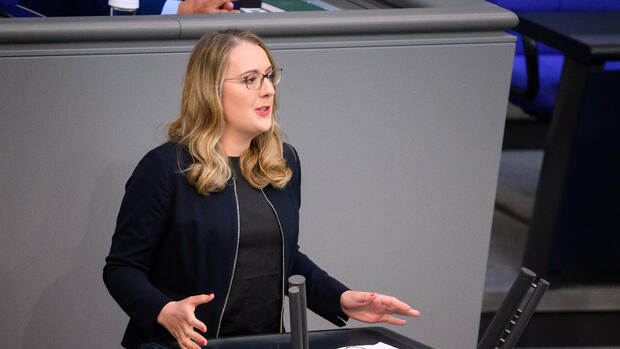The parliamentary group leader of the Greens expects that the GEG will be passed before the summer break.
(Photo: dpa)
Berlin The controversial law for replacing old oil and gas heating systems continues to cause disputes in the traffic light coalition. For the time being, the parliamentary secretaries did not put the law on the agenda of this week’s Bundestag session.
The group leader of the Greens, Katharina Dröge, said at noon that the negotiations were ongoing and that the law could still end up on the agenda. “That’s what we’re striving for as the Greens and that’s what we should aim for as a traffic light,” said Dröge.
“I am very sure that we will decide before the parliamentary summer recess,” said Dröge. There are two more weeks of meetings until July 7th. In addition, you have the clear agreement in the traffic light, she said. Dröge expressed himself “confident that we will come to a result”.
It was agreed in the coalition committee that the law should be passed before the summer break, Dröge added. If it didn’t happen, which she doesn’t expect, it would put a strain on the coalition’s ability to act.
With the heating law, the federal government wants to ensure more climate protection when heating. From 2024, every newly installed heating system should be operated with at least 65 percent green energy. However, no functioning heaters have to be replaced, and broken heaters can also be repaired.
The switch is to be socially cushioned by state funding. Transitional periods and hardship regulations are also planned. However, the details are highly controversial.
The Federal Minister of Economics had to take a lot of criticism because of the law.
(Photo: dpa)
Economics Minister Robert Habeck (Greens) recently proposed several adjustments. For example, the obligation to install climate-friendly heating in 2024 could initially apply to new buildings. Existing buildings can be given more time. In addition, transition periods could be better synchronized with the expansion of municipal heating networks. It is already planned that there will be more time for the heating replacement if the house is connected to a district heating network in the foreseeable future.
With agency material.
More: GEG – What costs the CO2 price would mean for private households
